My friends, I have a confession to make.
I...have sinned.
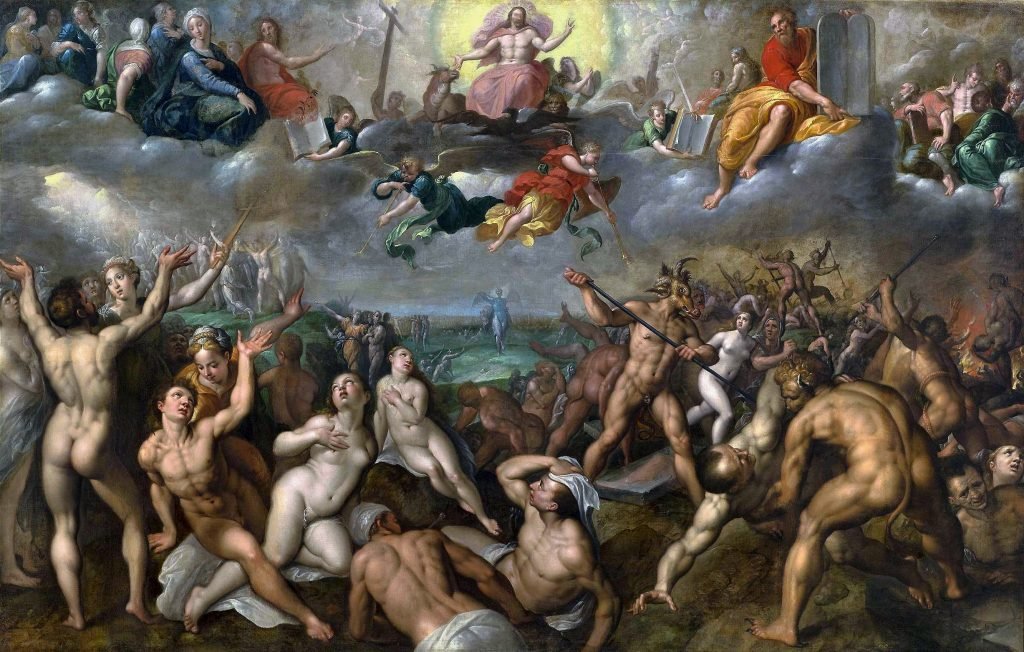
Great and terrible is my transgression, for which I am worthy of a thousand deaths.
What's that? You want to know exactly what I did to incur such wrath and wretchedness? Are you sure you want to know?
Very well, then.
*Sigh*
I did not see Pixar's Coco when it first came out in theaters.
How Scandalous!
Yes, but I've tried to atone. What else could I do but wait for it to come to Netflix, so I could give it the full depth of a review. Surely, that would lessen my burden of skipping the theater experience, and missing the movie everyone and their dog was saying that I had to go see, that it was an unmissable event that would forever change animated motion pictures, that it was the single defining moment of their collective lives.
So, I finally got around to watching Coco---the "best Pixar movie ever"---and what did I think of it?
I thought it was okay.
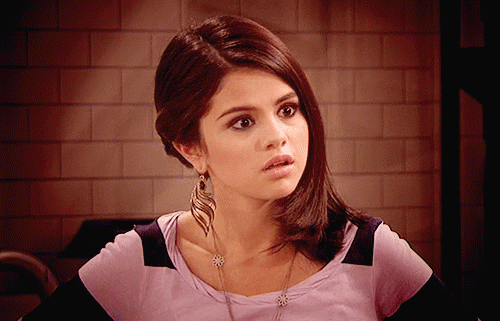
It was perfectly serviceable, with a few strong points in its favor.

And definitely not a bad Pixar movie. I mean, it's definitely in my top...fifteen, or so.
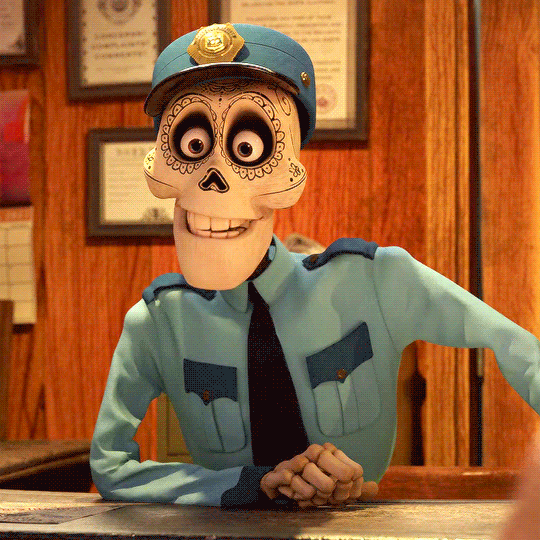
You heard me.
Let's Clear the Air
Look, Coco is a fine movie. It has great characters who, in keeping with the Pixar formula, are likable, sympathetic, and talented.
But it's not the movie I was promised. Word of mouth was that it was the most heart-wrenching film in the entire Pixar family, with emotional stakes that would make the a miserly hitman weep sympathetic tears.
How surprising, then, to find that Coco was actually one of the most upbeat and brightly presented in all of Pixar canon. It repeatedly downplays the notion of any real danger to the characters and breaks the tension with jokes and music in places where other Pixar movies would allow the existential dread to sink in.
Yes, this movie has its climactic "All is Lost" moment. But it never gives us reason to believe that all won't quickly be resolved. Compare that to, say, the climactic moment from Toy Story 3.
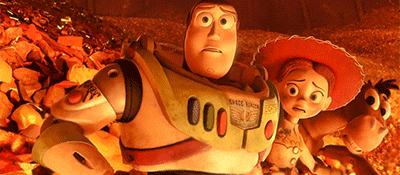
And you can see where Coco diverges from the Pixar pattern.
But before I analyze too much, let's summarize.
The Story
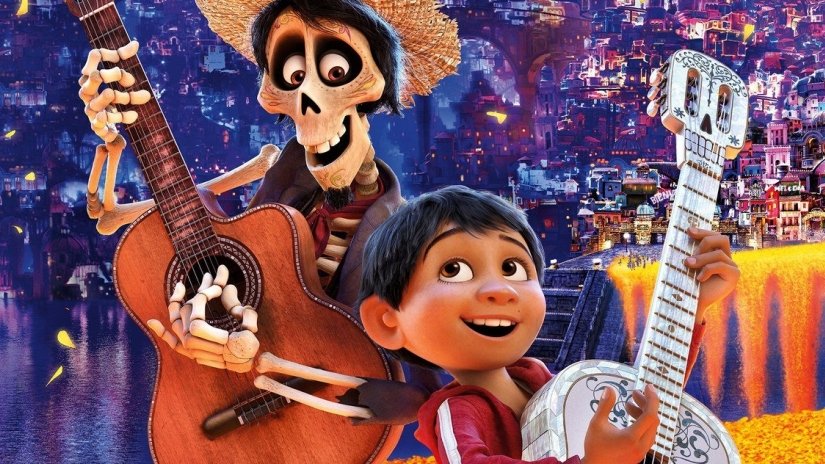
Coco is a supernatural fantasy set in Mexico, revolving around the holiday Dia de los Muertos and the surrounding folklore, namely that the spirits of the dead are allowed to visit the land of the living once a year, to spend time with family members and loved ones they left behind.
But in the case of Miguel, our protagonist, there is a complication. His family is still shaken up by the abandonment of his great, great, grandfather, who years ago left his wife and daughter to fend for themselves so that he could seek a career as a musician.
Consequently, the family has permanently forbidden all forms of music, believing music to be the cause of their misfortunes, which causes trouble for the Miguel's budding musical talent.
But after a series of events leads Miguel to suspect that his deadbeat double-great grandfather was actually Mexican mega-celebrity (and Miguel's personal idol) Ernesto de la Cruz, he seeks to make a name for himself as a musician, leading him to "borrow" de la Cruz's guitar from his tomb.
Since stealing from the dead, on the day when you are supposed to give offerings to them, violates paranormal law, Miguel finds himself whisked away to the afterlife, where he has to confront the other half of his family (the dead half), who will only return him to the land of the living if he foreswears music forever.
Understandably defiant, Miguel resolves to secure passage back from someone who understands his musical ambitions, and the only person who fits that bill is Ernesto de la Cruz himself. He enlists the help of a vagrant ghost named Hector, who cannot visit the land of the living because no one remembers him, and who may be more than he seems, to get him into de la Cruz's good graces.
Structural Fissures
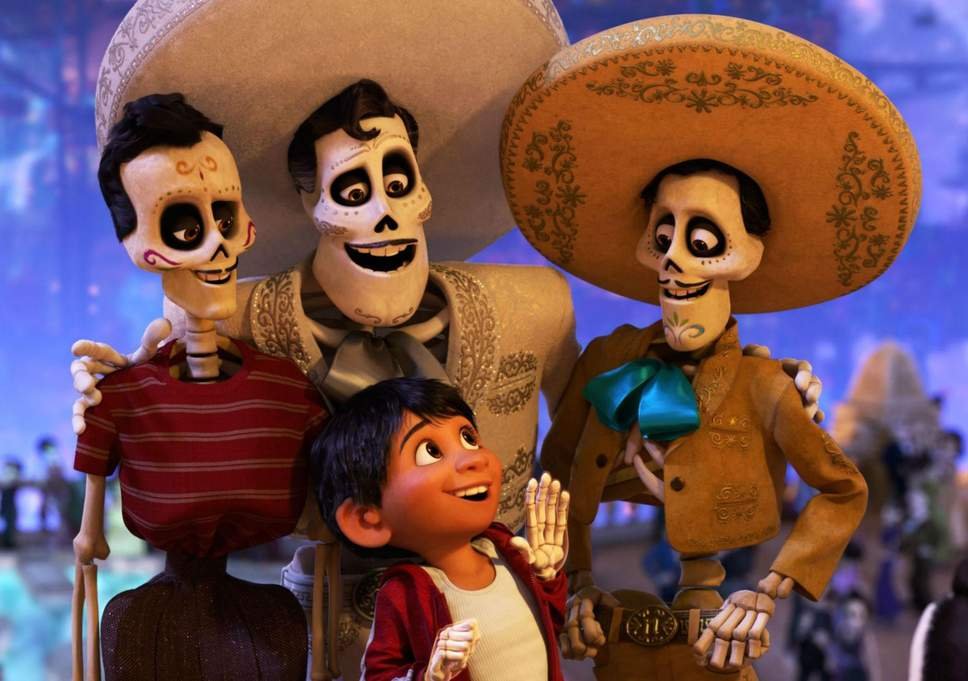
My primary beef with Coco is how it treats its narrative structure like an afterthought. And perhaps that's just unavoidable for a writer like me who considers himself a structurist, but I believe the problems are obvious enough to be seen by even a casual viewing.
The beginning of the movie is rushed. Miguel's grandmother pulls a King Triton and destroys Miguel's shrine to music, thus setting the story in motion. But we have seen this done before, almost beat for beat.
Later, when the villain is finally revealed, it is done through a contrivance---an extremely glaring one. I don't want to spoil too much, but I can say that Miguel manages to unmask the villain only because there happens to be a nearby projector playing a movie that has the exact same plot as the real villain's evil scheme. It just happens to be playing right then and there.
That's just too hard to forgive.
That the villain's backstory is strangely comparable to the one from Adam Sandler's The Waterboy was also a little unnerving.
Likewise, when the dead great, great, grandmother finally confronts the deadbeat great, great, grandfather, and she claims that she cannot forgive him, that is almost a powerful moment. But it is completely undercut when, in almost the very next scene, she proclaims that he is the love of her life. All is essentially forgiven. Just like that, with no intervening character development.
Every one of the plot resolutions is just so...easy.
And rushed, too. When the time comes to band together, and the family sneaks into the villain's lair, they manage to completely destroy him by...covertly broadcasting his villainous monologue/confession to the world. He ends up defeating himself, more than anything. It's just one of many places where the air was let out of the story.
And Then There was the Dog

Now, I understand that every animated movie needs to have an animal sidekick character. It's the law. And we just have to live with it.
Yet this addition to Coco's cast leaves me scratching my head, as I try to remember exactly what he did that contributed to the story.
Other animated animals, such as Pascal from Tangled, certainly had small roles, yet even Pascal ends up contributing in a major way by, y'know, murdering his movie's villain.
Sven from Frozen, likewise, forces Kristof to go back for Anna when he's about to leave her forever.
Yet Miguel's dog really doesn't do anything here. You could subtract him entirely from the movie without changing the tone, story, or character arcs of anyone. He doesn't even manage to rescue Miguel in the end (he pathetically tries and then fails, with no further repercussions).
The dog's presence, alone, convinces me that the screenplay needed one or two more rewrites.
One Redeeming Quality
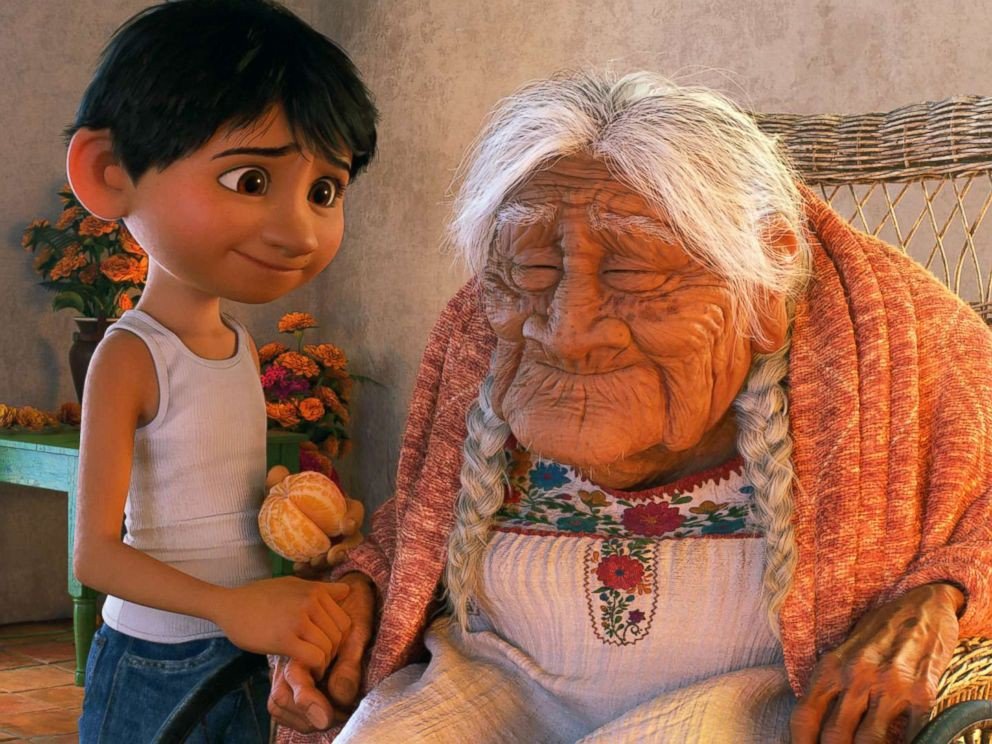
Despite all my gripes with the story structure, there is one aspect in which this film excels. In fact, in this one respect, Coco does better than any other Pixar movie.
And that would be its music.
Coco isn't a musical. All the songs are still songs in-universe (nobody suddenly belts out a number, accompanied by some unseen orchestra). Yet the various musical outings in this movie are all well tailored, moving, and perfectly executed.
The soundtrack surpasses even the critically acclaimed score of UP, and is backed by the kind of voice talent that belongs on the silver screen.
Even the child voice actor playing Miguel brings the chops. In particular, the closing song of the movie shows off his pipes in spectacular fashion.
Conclusion
Coco is a laudable effort.
It certainly wasn't the movie that was advertised. Even the trailers were a bit misleading (the movie's title actually doesn't refer to the name of Ernesto de la Cruz's guitar). And I feel like most critics were just a touch too generous in their assessments. But then, like most Pixar films, there is a kind of brand bias that shields and insulates even the less than spectacular installments.
It deserves a watch. Maybe even two. But it falls short of the Pixar pinnacle, though I would be on board if the studio decided to revisit the property someday. The film introduced us to a huge supernatural world whose surface was barely scratched, and there are many aspects of Mexican culture that could be explored, outside of the colorful and festive Dia de los Muertos.
Previous entries in the Netflixing series:
Past Years
TV Shows
Movies
